Daffodils spring into color with trumpet blooms that herald winter’s end. They offer picture-perfect cupped flowers in cheery yellows, whites, and peaches. Like magic, they burst forth in sunny sweeps across the frosty landscape.
While they appear delicate, the perennials are hardy stock. The durable growers flower reliably and naturalize well across climate zones, depending on the variety. Plant the spring-flowering bulbs in the fall or winter while the soil is workable. Cluster them in groups or drifts for the greatest impact. Daffodils are easy to plant: dig to a depth two to three times the size of the bulb, scatter three to six inches apart, and cover. Wait for the much-needed dose of sunshine come spring.
You can easily force daffodil bulbs indoors to bloom earlier than in the winter landscape. They make cheerful, elegant holiday displays and gifts. Opt for pre-cooled bulbs, which the grower has exposed to a necessary chill time. They’re ready to grow and flower in about three to four weeks.
With this month as the perfect time to plant these happy bloomers, winnowing down the selection is a joyful feat. Here, we’ll explore extra large daffodil blooms that are showstoppers on the stem and in the vase.
British Gamble Daffodil
British Gamble Daffodil Bulbs
Las Vegas Daffodil
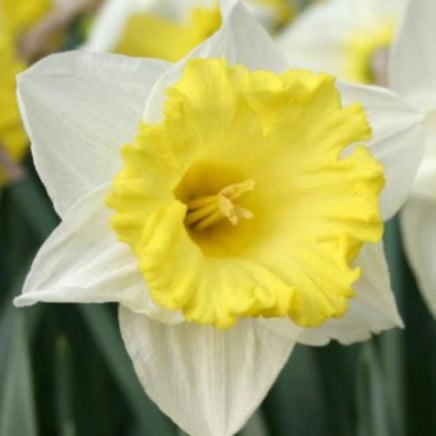
Dutch Master Daffodil
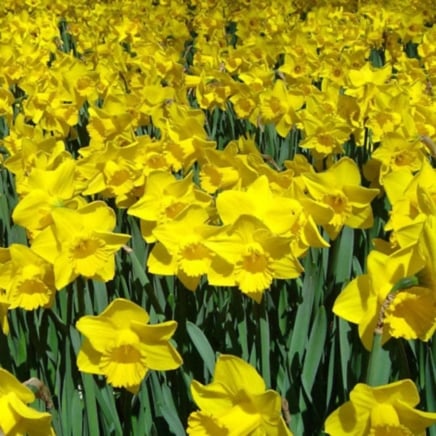
Dutch Master Daffodil Bulbs
Types of Large-Flowering Daffodils
The Royal Horticultural Society established 13 descriptive divisions for daffodils based on flower characteristics. The largest blooms usually fall into these types:
Quintessential, featuring a large, distinct corona (central cup or “trumpet”) proportionate to the surrounding tepals (outer petals that make up the perianth); produces a single flower per stem.
Comprises the majority of daffodils; has a prominent central cup that measures over one-third the length of the petals but not as long; one bloom per stem.
Double tepals and cups for a fully-petaled bloom with one or more per stem.
White outer perianth (outer part) with a red-ringed disk cup and green center.
‘Fortissimo’
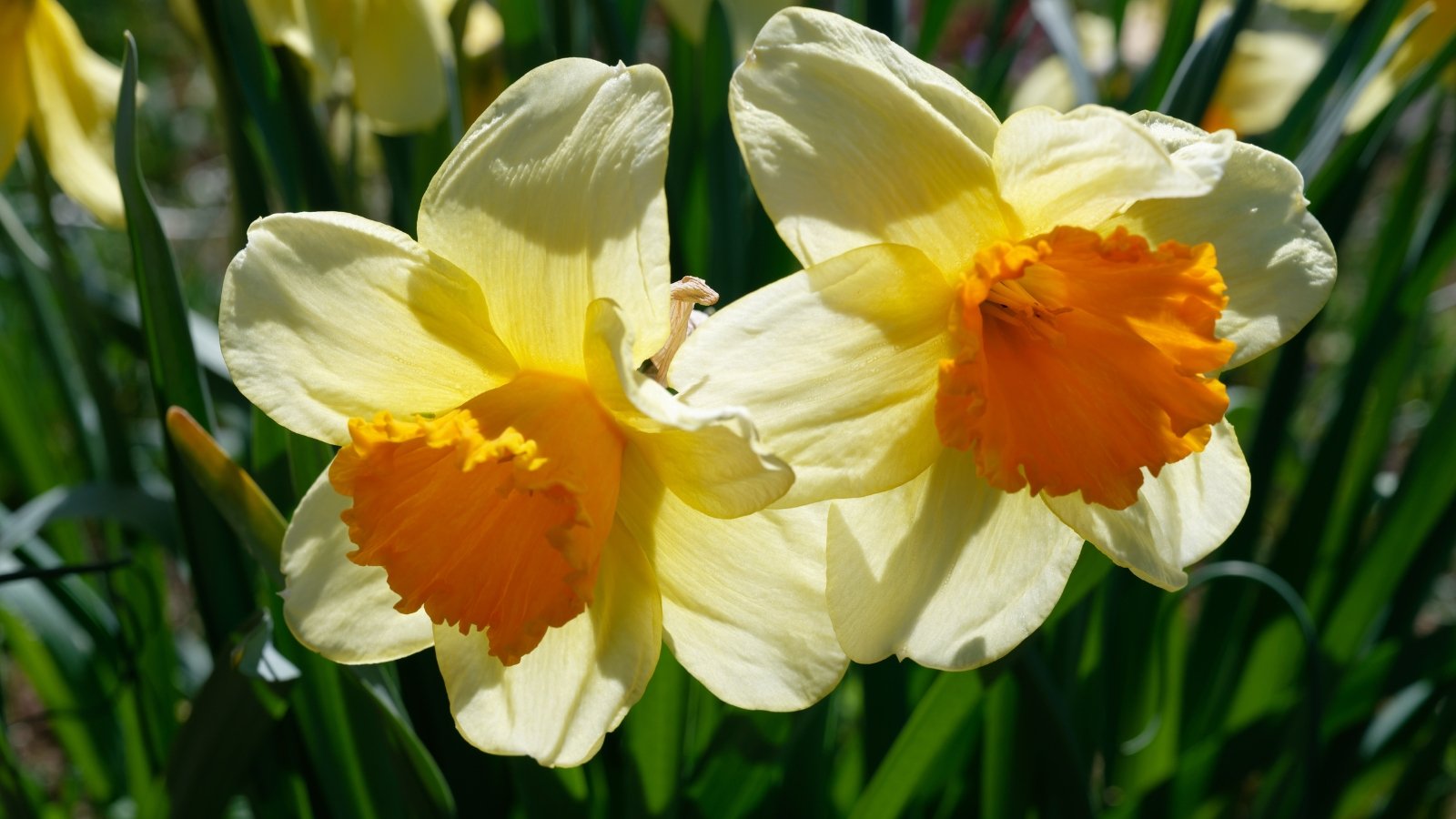
In musical direction, fortissimo is to perform loudly. This large-cupped variety represents that notion in flower form – it performs loudly with huge, five-inch blossoms. Golden yellow petals hold a vivid red-orange cup with slight frills.
‘Fortissimo’ springs up mid-season and is an easy naturalizer. It also makes a striking cut flower for fresh arrangements. Vigorous growth and good display performance make this one stand out in the floral symphony.
‘British Gamble’
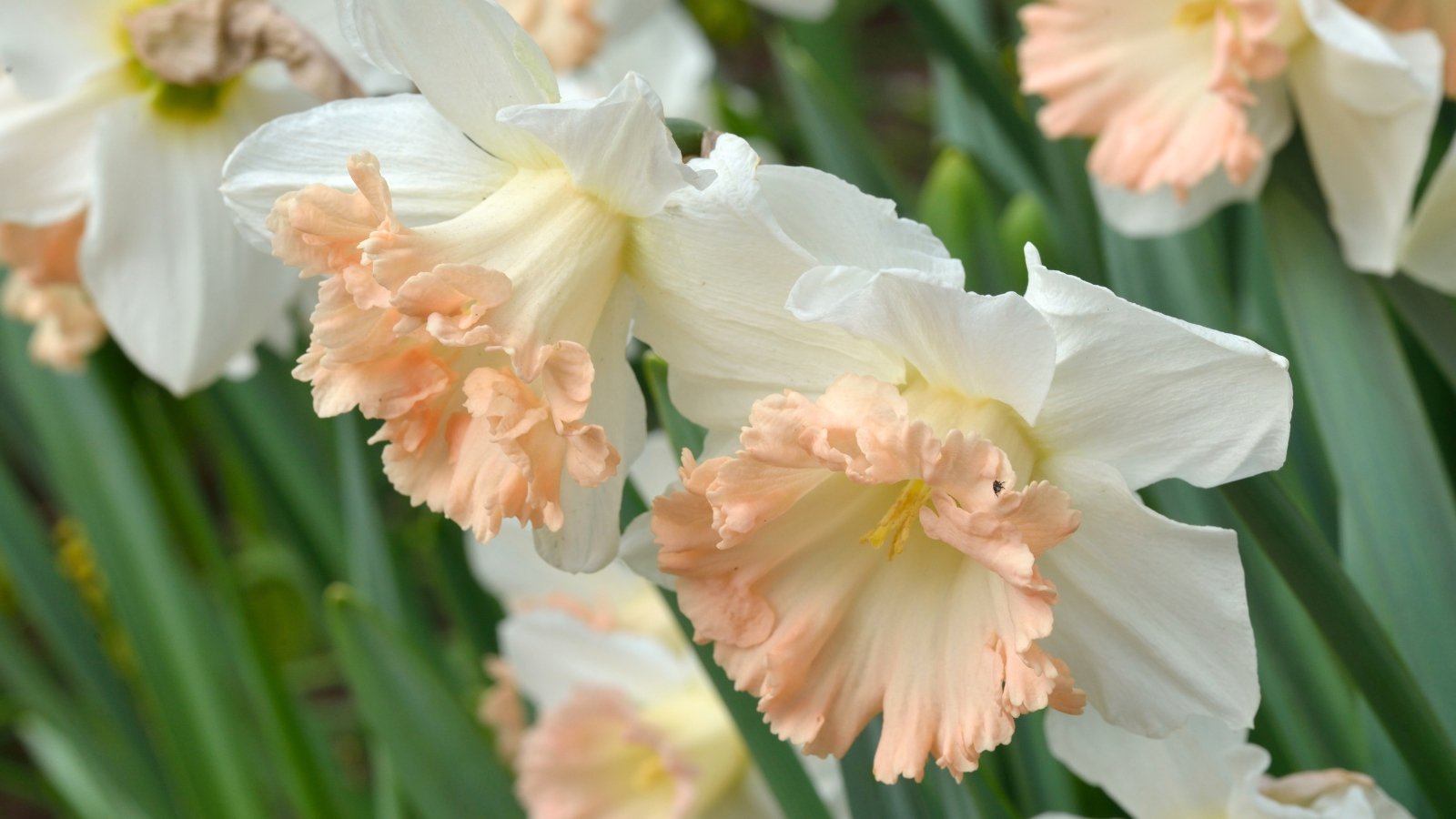
‘British Gamble’ softens the display in sweet white and peachy pinks, though it’s just as showstopping as its brightly colored counterparts. This trumpet type is stunning, with large, tissuey white petals and a huge coral-toned corona. Shades of deep to light rose-apricot rim the trumpet’s ruffled edges. The interior cup is white with a subtle golden glow.
The size of the blooms, coupled with the broad corona in unique shades, give this beauty an exotic charm. Its sweet fragrance adds to the appeal. This one is lovely on the stem or in a bouquet.
Temperatures affect daffodil colors, and pinks are “pinker” in cool weather. Warm temperatures amplify orangey notes.
‘Exception’
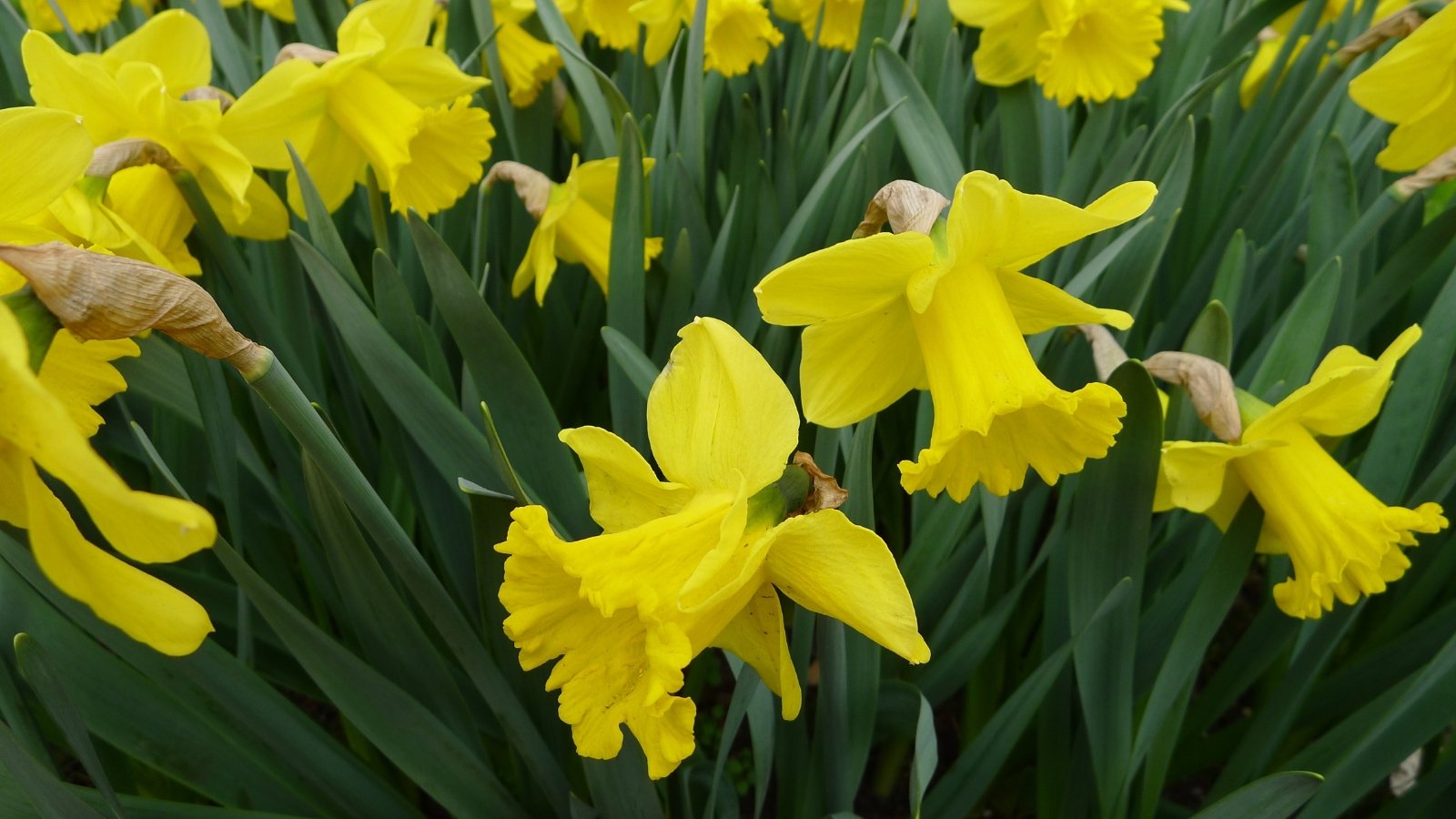
This trumpet emerges early to mid-season with the brightest yellow ruffled cups and pointed petals. ‘Exception’ is a classic-looking selection, except it has larger blossoms than many, at five inches across, and bright color saturation.
The upward-facing blooms have good substance on tall, sturdy stems for a strong display. They naturalize well for dependable recurrent color en masse. They also make lasting cut flowers.
‘Las Vegas’
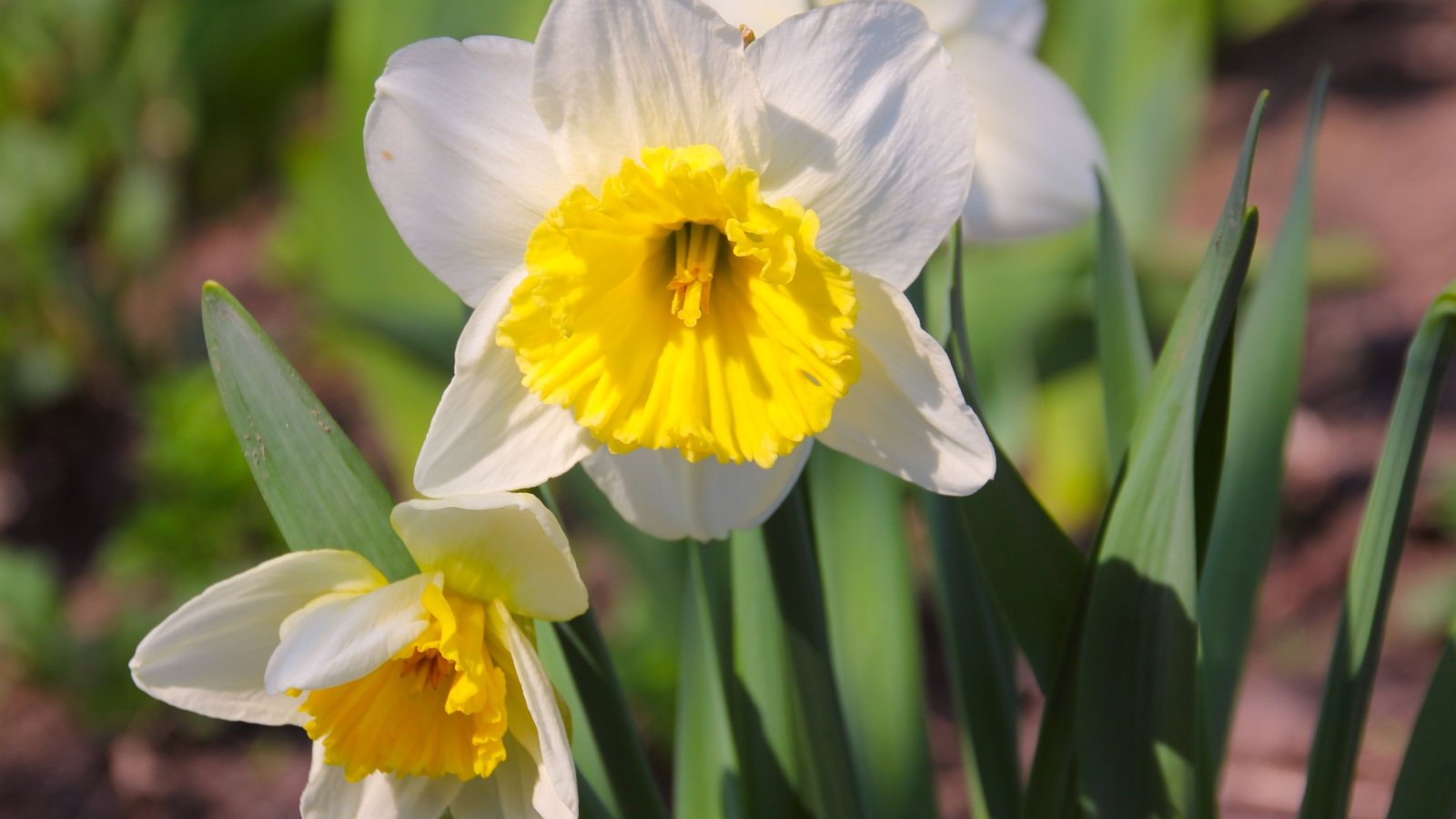
Viva this bloom! Large-cupped ‘Las Vegas’ shines with a buttercup yellow center that punctuates a creamy white foundation. Billowy frills add interest to these up-facing, giant florals.
Bold and bright but not glaring, the shades spotlight other spring bulbs or stand alone in a group. ‘Las Vegas’ has good form and sturdy stems. It multiplies in the landscape, making it a good perennializer.
‘Las Vegas’ received the prestigious Wister Award for outstanding garden specimens from the American Daffodil Society. This is an early-to-mid-season grower.
‘Actaea’
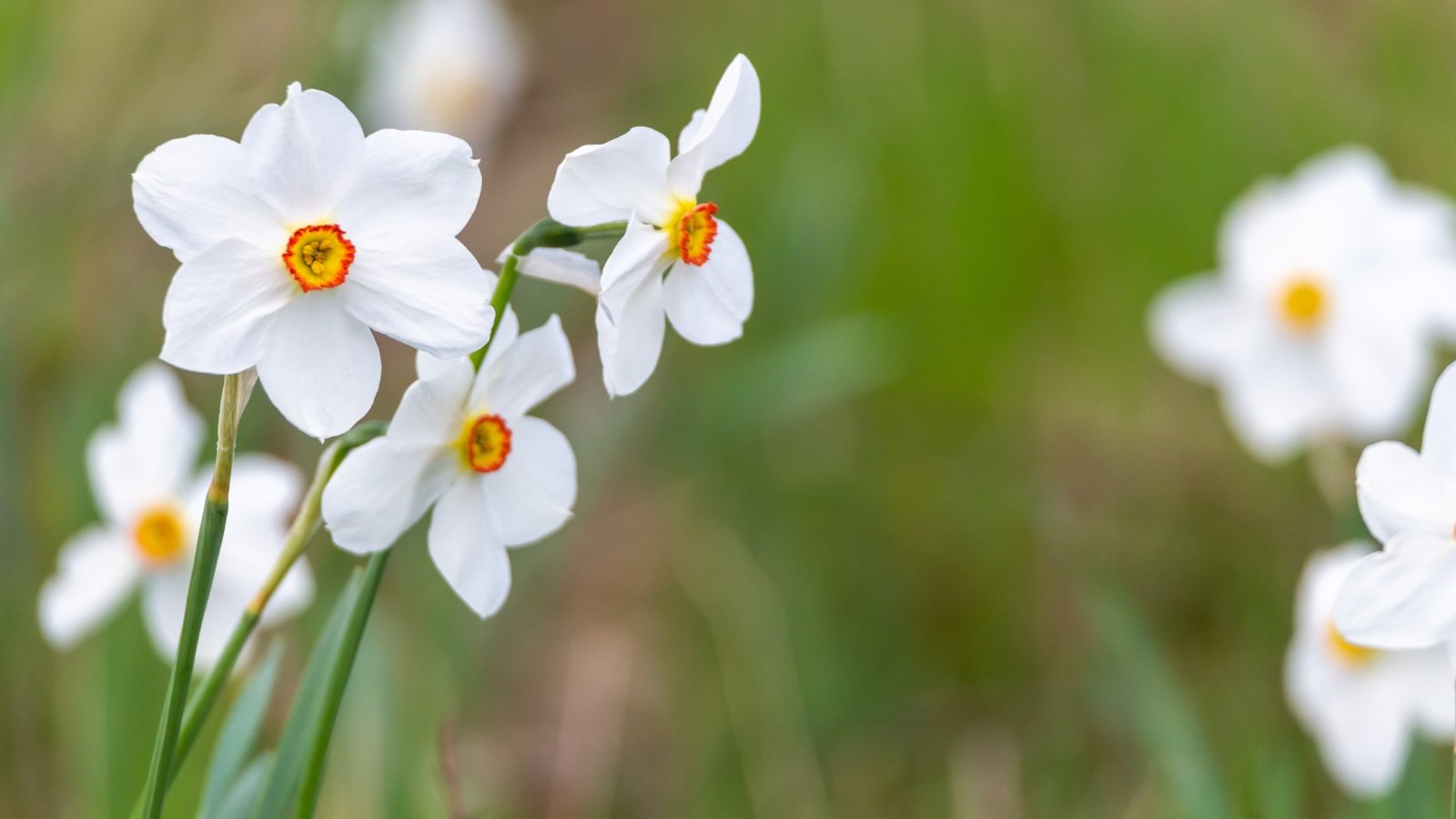
This beloved heirloom is a poeticus type with broad outer petals and a shallow central disk. The pure face is crisp white with a painterly crimson-rimmed corona. The interior of the disk is soft gold and green for an overall delicate contrast.
‘Actaea’ is a Royal Horticultural Society Award of Garden Merit recipient and Wister Award winner. It’s one of the last to flower and bears a sweet, spicy fragrance.
‘Actaea’ perennializes readily with low-maintenance growing requirements, to be left undisturbed for years. It tolerates wet, poorly drained soils better than other Narcissus.
‘Dutch Master’
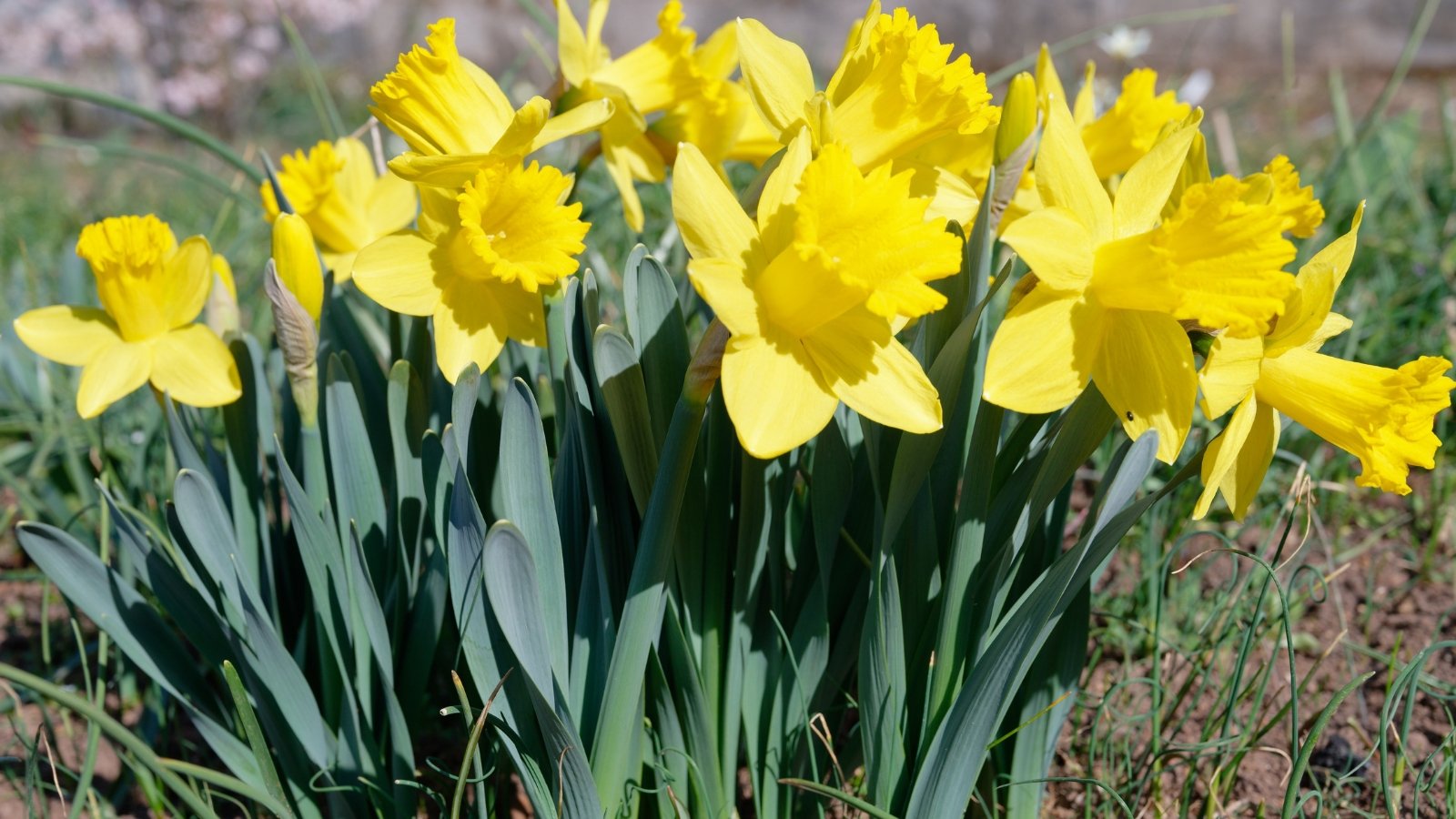
‘Dutch Master’ is the (literal) gold standard for large-cupped daffs. Its substantial blooms are bold and bright in sunny yellow with fluted, flaring trumpets. A profusion of the sizeable blossoms gives way to a big show of easy, lasting color.
‘Dutch Master’ joins the ranks of ‘King Alfred,’ an original hallmark among the genus. ‘King Alfred’ remains so but is harder to find. ‘Dutch Master’ and others are often sold under its name.
This award-winning performer has Award of Garden Merit and Wister status. Known for its dependable resurgence in mid-spring, ‘Dutch Master’ perennializes freely for years of show. Grow it in drifts under tree canopy for a glow from near and far. ‘Dutch’ also forces easily for a lovely indoor display or gift of cheer.
‘Ice King’
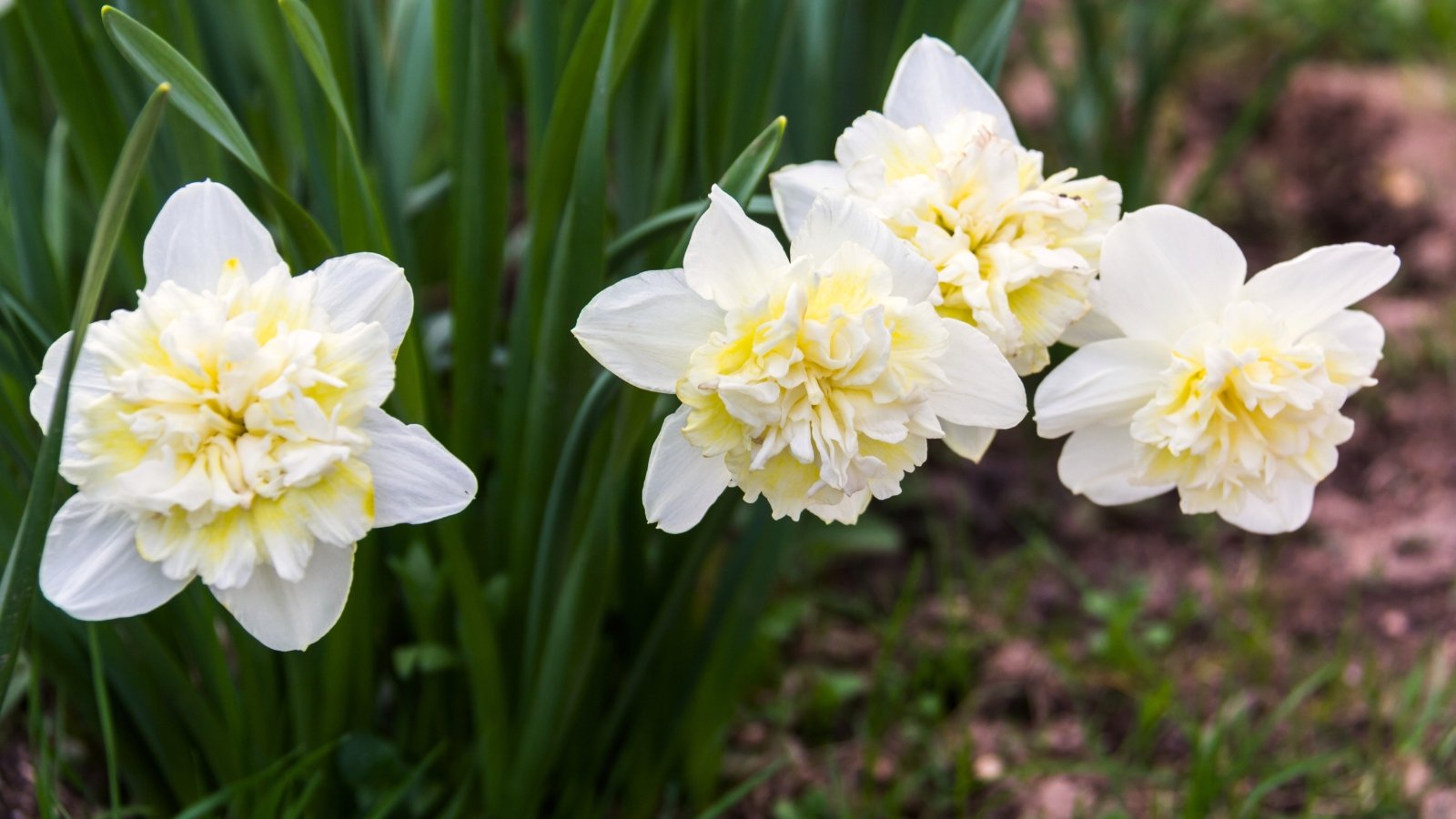
‘Ice King’ is a frilled double daffodil with folds like gathered organza. Lemon yellow surrounds fully double, ivory centers against ruffly outer petals with a slight reflex backward.
‘Ice King’ is a sport of the highly popular ‘Ice Follies’ in the large-cupped division. ‘Ice Follies’ brings four-inch tepals in crisp white with prominent shallow coronas in yellow.
These come sunny-side up and are an early Wister winner. ‘Ice King’ is a double version of its parent with a softer palette in buttercream.
‘Precocious’
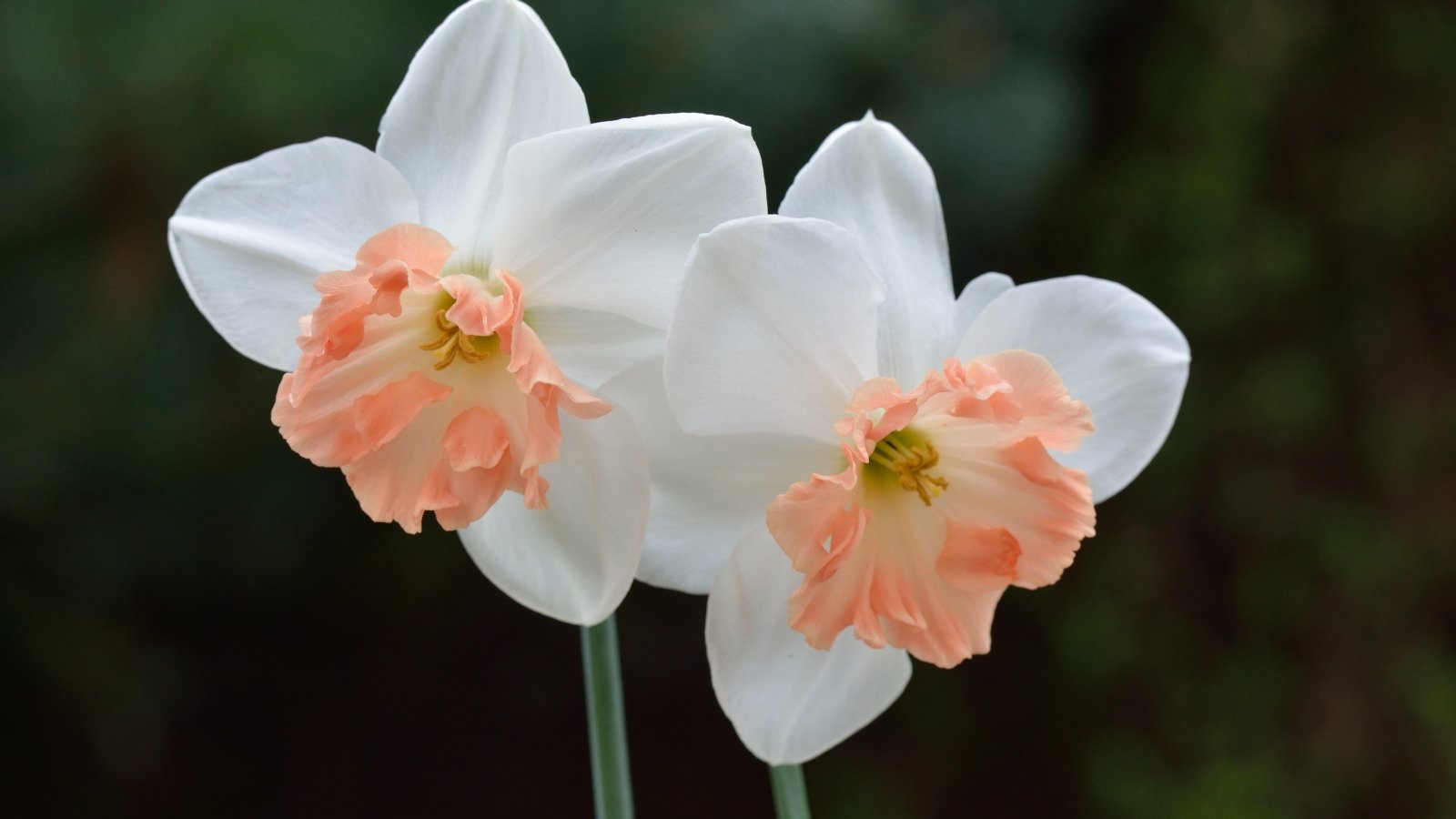
‘Precocious’ is arguably one of the showiest Narcissus out there. Its wide, extra-large coral cups crimp against a pure white saucer of surrounding petals.
The rosy-peach trumpets vary in light and deep shades, with gold and green at their center. They top tall, sturdy stems for an elegant floral parade in the border or the bouquet.
‘Delnashaugh’
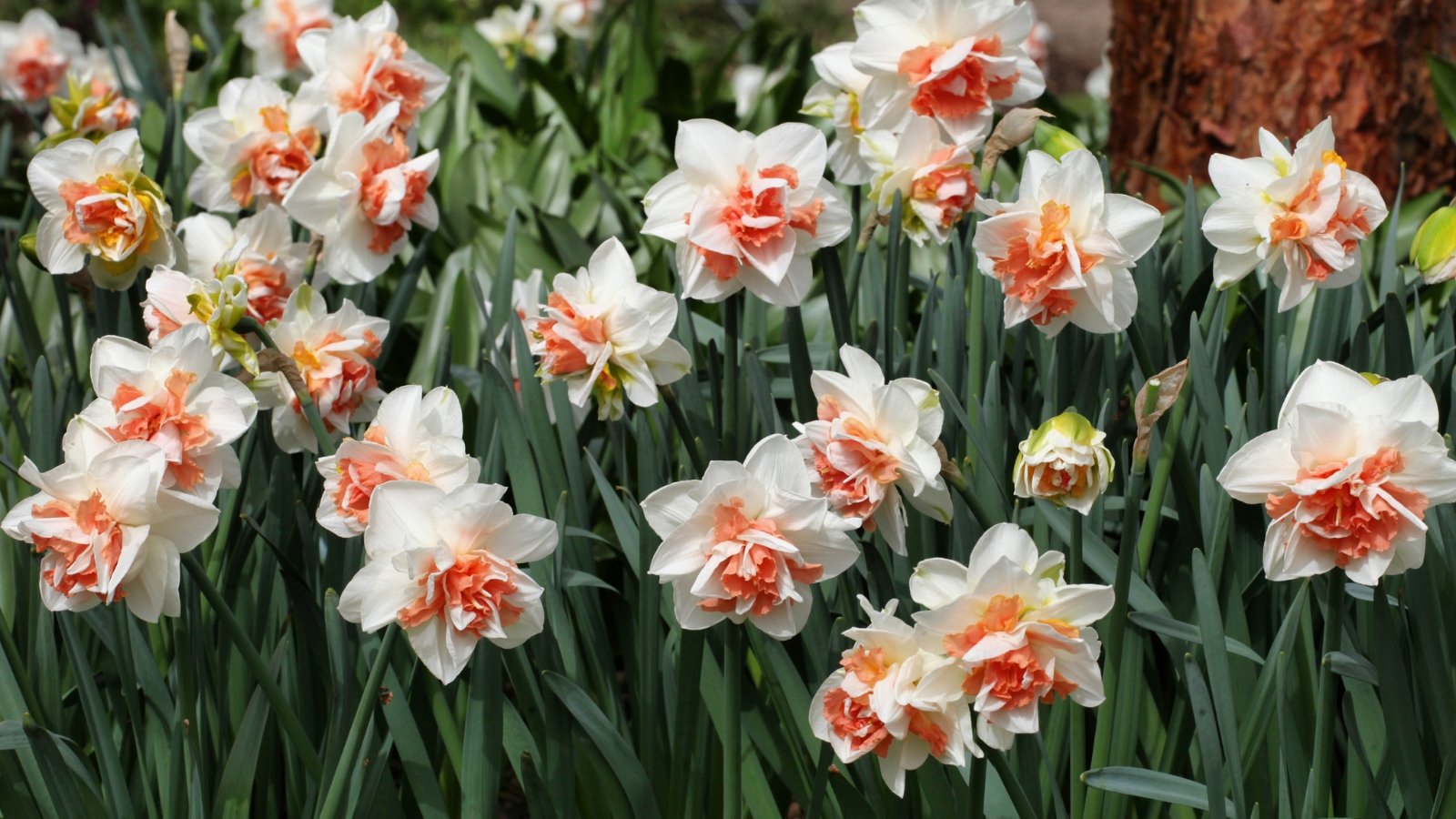
Growers prize ‘Delnashaugh’ for its quality pinks. These hefty doubles have interspersed petals and centers with folds of white and pinky-apricot. Rounded, pure white outer petals embrace delicate peach ruffles.
Sturdy stems hold single blooms upright with a long-lasting display in-ground and freshly cut. A sweet fragrance adds to the charm. ‘Delnashaugh’ appears in mid to late spring and retains the best pink tones in dappled and filtered sunlight.
‘Dinnerplate’
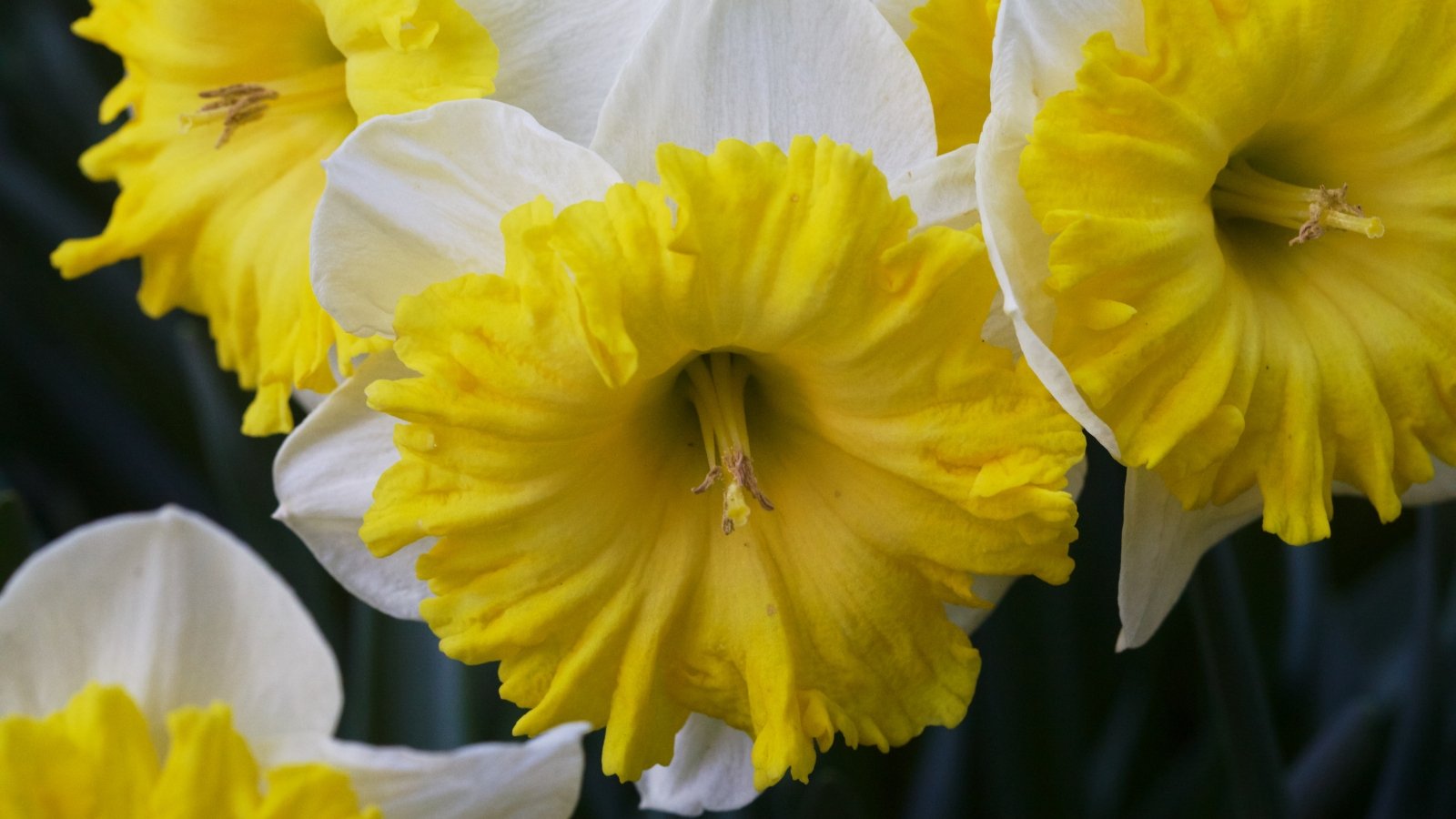
Maybe not the size of actual dinnerplates, but these saucers are impressive with wide, large cups. The expansive yellow disks nearly obscure the surrounding white tepals.
The prominent pleated cups look like little sunshines dotting the landscape early to mid-season. Bundle them in a bouquet to spread the cheer. ‘Dinnerplate’ holds up in varying weather conditions on stout stems.
‘Carlton’
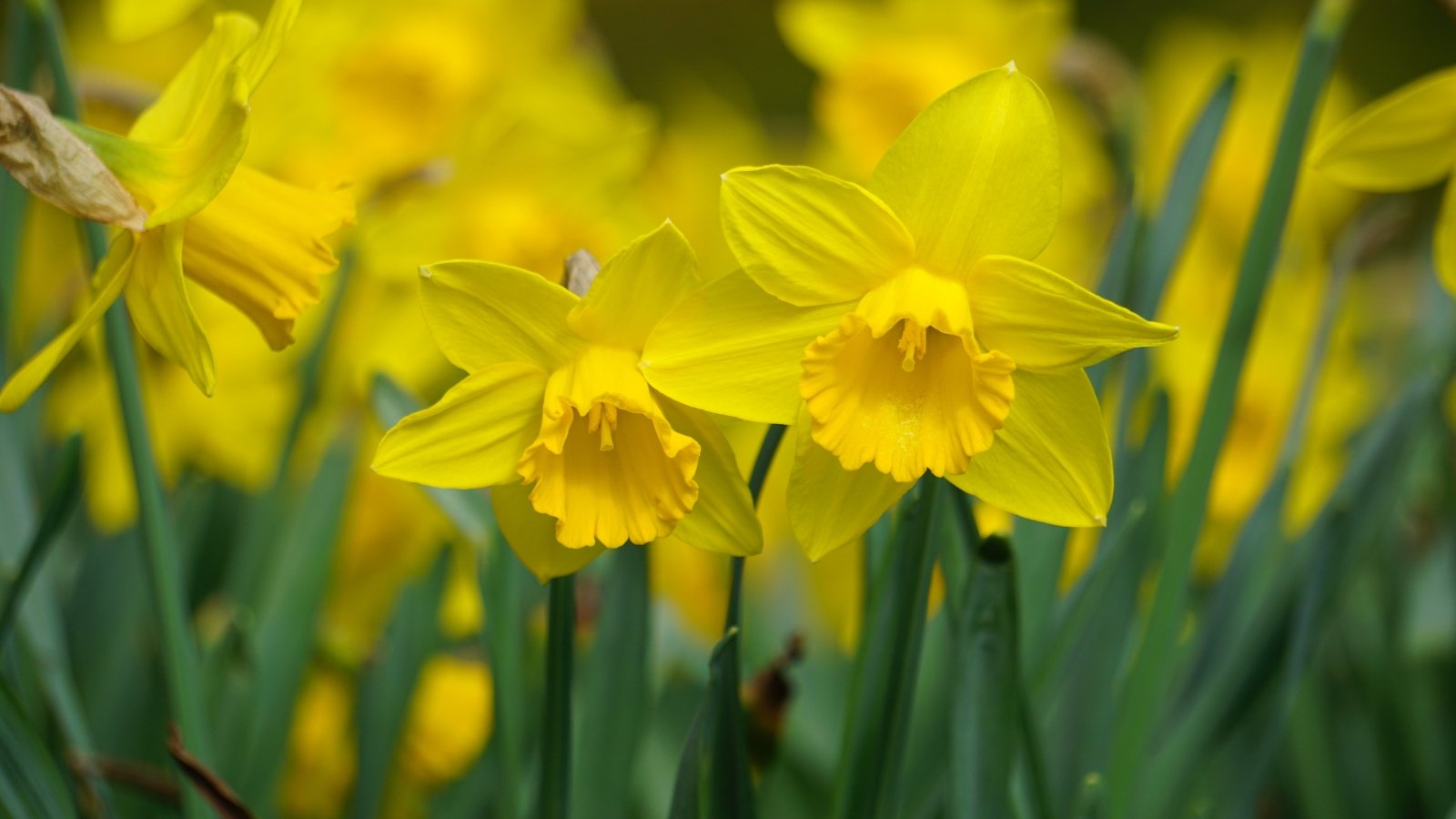
A historic 1927 daffodil, ‘Carlton’ is consistently one of the most popular varieties for its picture-perfect good looks and performance. In bicolor yellows, a lemony perianth frames golden trumpets.
‘Carlton’ is an Award of Garden Merit recipient. It rises in early to mid-spring with a subtle vanilla scent. This one is a strong perennial choice, even in warm, Southern climates where others fade.
‘Mount Hood’
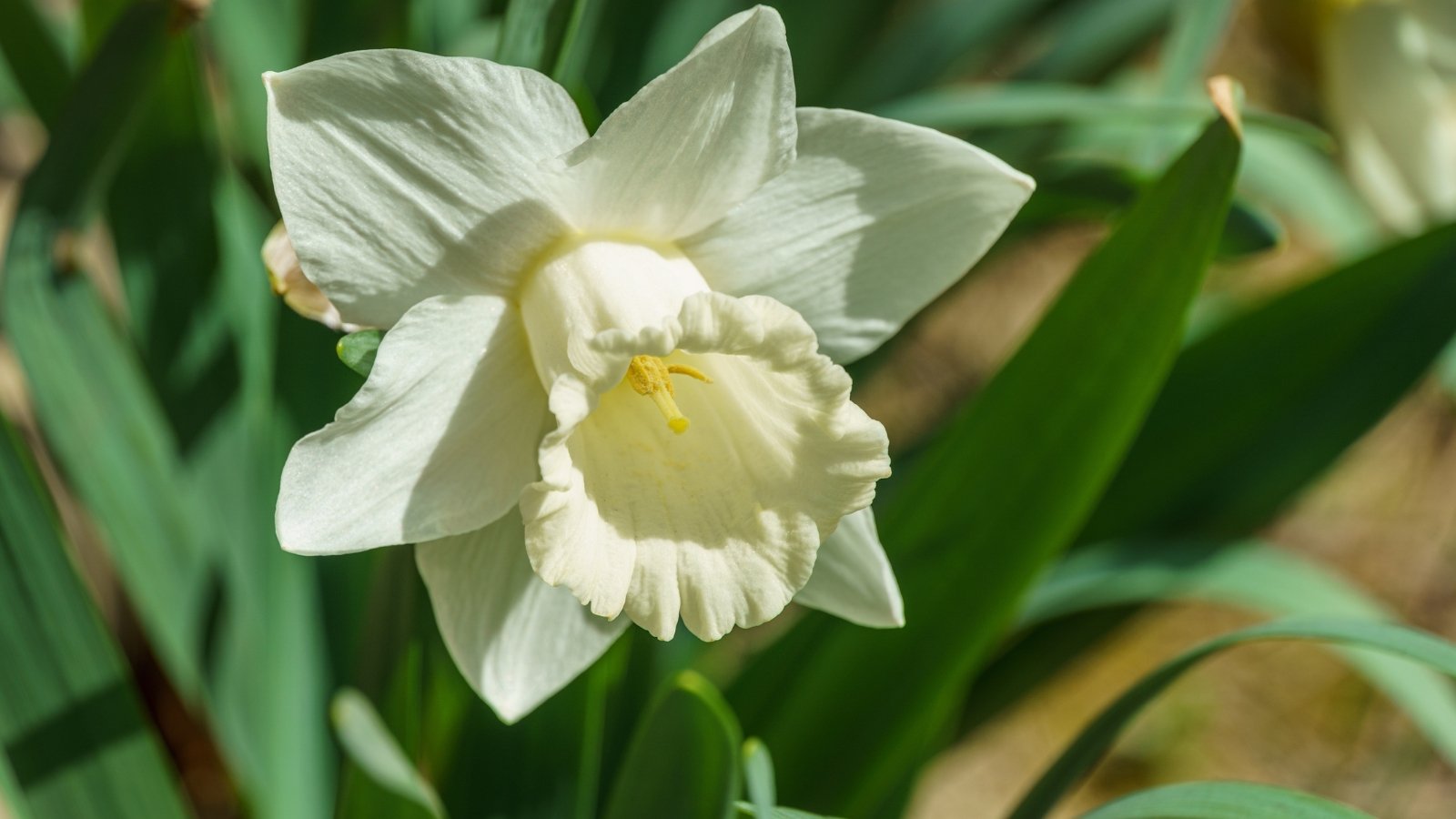
This 1938 American Daffodil Society Historic selection is a longrunning favorite. It boasts a prominent, flared trumpet against a creamy white perianth. With buttery beginnings, it matures to creamy white.
The award-winner (both Wister and Award of Garden Merit, among others) has strong stems and a robust, floriferous habit. These are elegant in a stand with their upright stems and large, five-inch blossoms.
‘Le Torch’
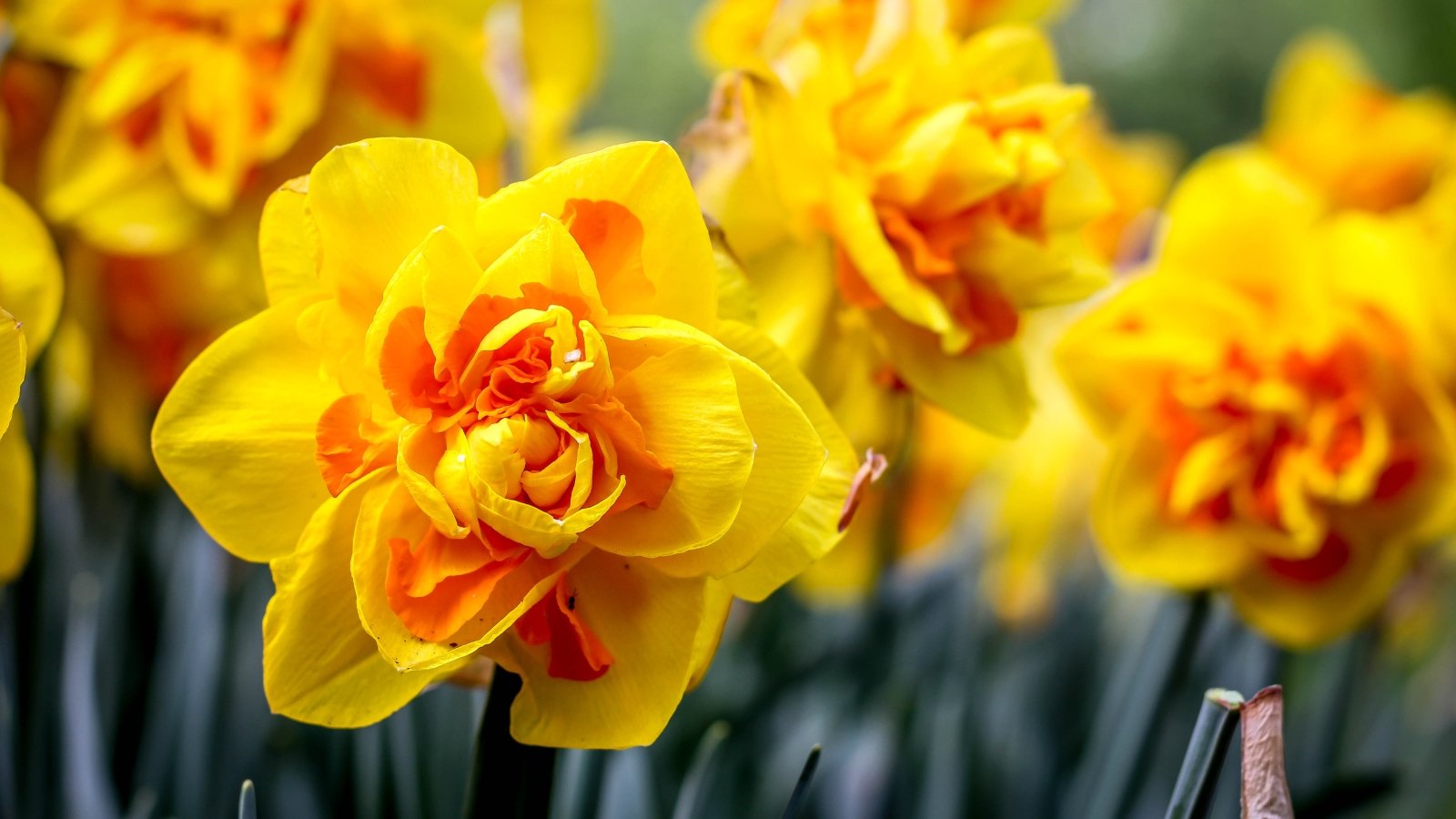
‘Le Torch’ is a beacon in mid-to-late season with radiant orange and yellow tones. Orange layers glow from within the thick gold folds. The fully double flower is substantial and reaches nearly five inches across.
‘Le Torch’ is another Award of Garden Merit recipient. This winner is from Irish breeder Brian Duncan, who hybridized daffodils for over 50 years. Duncan received the RHS’ highest honor for horticulturalists, the Victoria Medal of Honour. He and his wife Betty achieved the American Daffodil Society Award for Innovation. ‘Le Torch’ certainly reflects an innovative twist on the double division.
‘Salome’
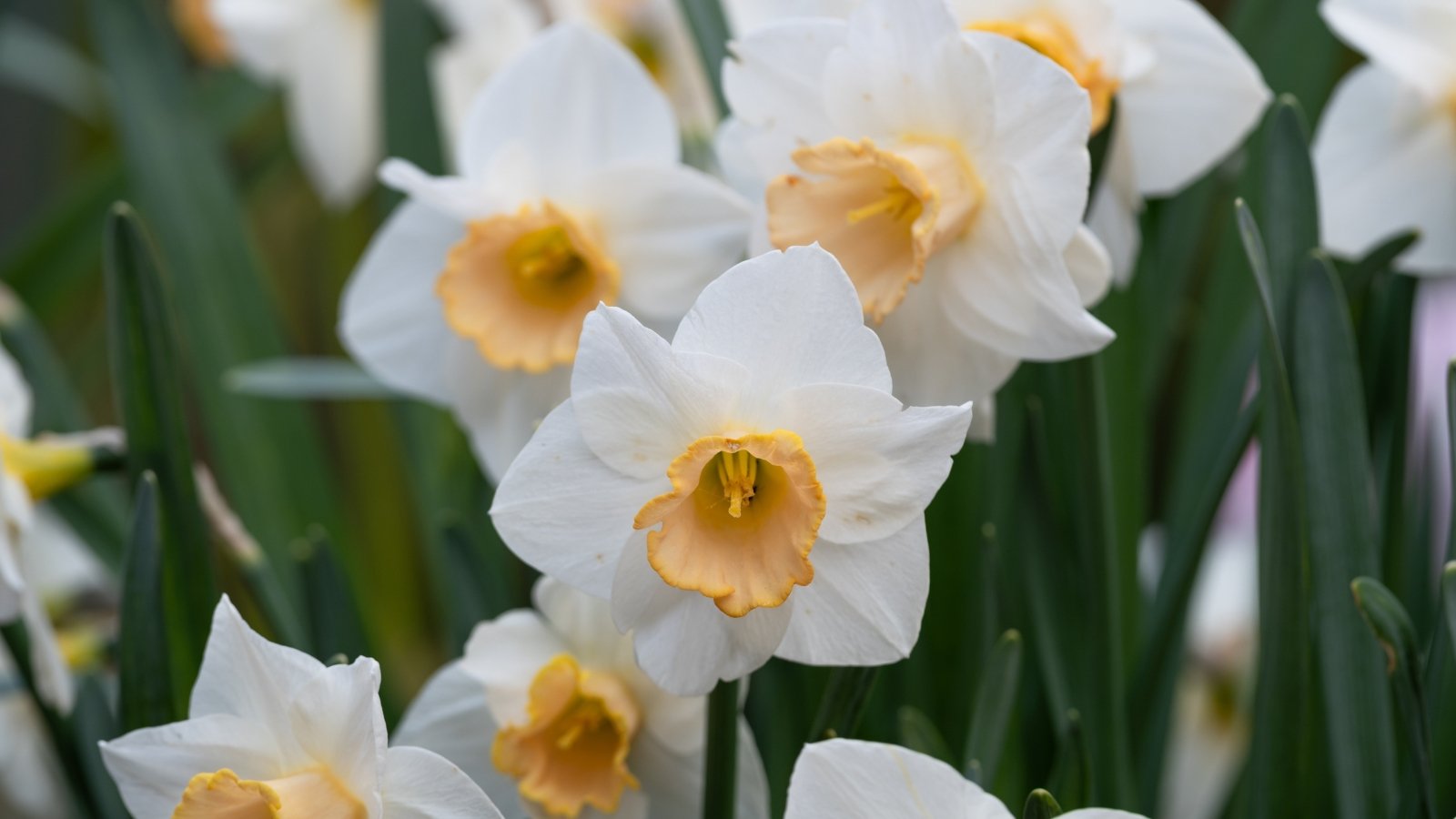
‘Salome’ is an exquisite peaches-and-cream mid-season grower. Partnered with early and late-flowering daffodils, ‘Salome’ spans the heart of spring and adds to weeks of lasting flowering.
‘Salome’ is a popular large-cupped variety and a winner of the Wister, Award of Garden Merit, and more. The solitary flowers have a peachy-yellow cup surrounded by creamy petals. The tall, upright stems are a good fit for the border, container, and vase.
‘Gigantic Star’
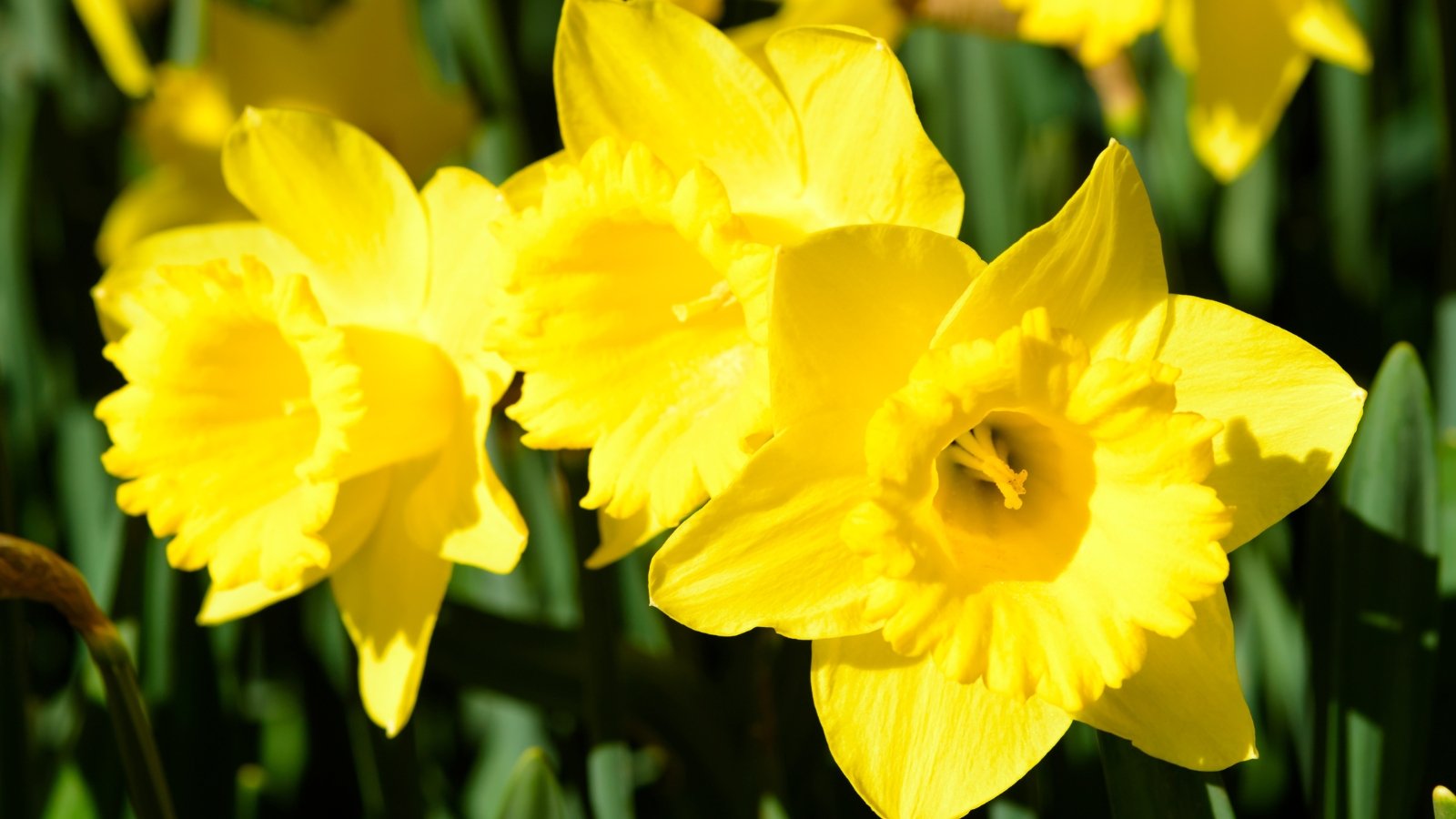
Large-cupped with big, bold, yellow trumpets and starry tepals, ‘Gigantic Star’ brings a wash of color in classic Narcissus form. Broad, overlapping petals have slight pleats and frilly centers.
With ‘Carlton’ as its pollen parent, they have exceptional durability and a soft vanilla fragrance. The sturdy performers boast Award of Garden Merit status.




